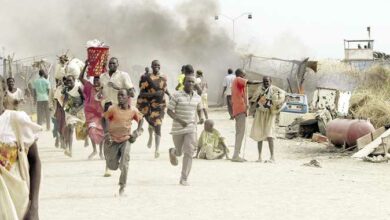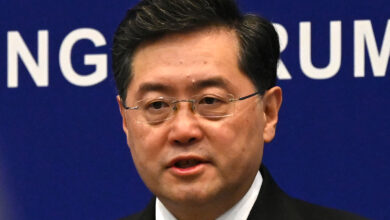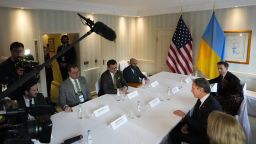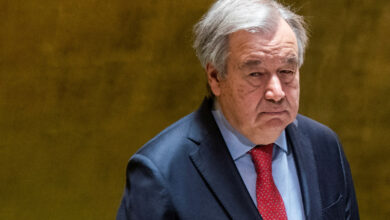
The delegates of Rio+20 have reached on Tuesday a last-minute agreement on a draft of a final statement, only a few hours before the start of the global summit in which more than a hundred heads of state will commit to eradicating poverty and protecting the planet. Dozens of ministers will also participate in this summit, which last until Friday, 20 years after the last Earth Summit took place in Rio de Janeiro.
They are set to ratify on Friday a final statement draft of 49 pages, titled “The Future We Want,” a text prepared under the authority of Brazil after five months of United Nations negotiations had failed to deliver. Adopted at midday on Tuesday after a new round of negotiations by the 193 UN delegates, this draft on sustainable development is already vigorously criticized by the world’s most influential environmental NGOs such as Greenpeace and the World Wildlife Fund.
Egyptian environmental activist Lama El Hatow, who represents IndyACT (a league of independent activists) in the NGOs and civil society movements, is attending the summit. Extremely disappointed by the weaknesses of the new draft, she wrote the following exclusive account for Egypt Independent.
Amid booing and cackles by civil society at the back of the plenary, delegations at the Rio+20 United Nations Conference on Sustainable Development attempted to drown out their calls for help by clapping away our future as the Brazilian chair adopted the draft text Wednesday. The Brazilian presidency will not allow a reopening of the draft text from here on until the end of the summit.
So as world leaders join us Wednesday, they will formally adopt the draft text that is now put forth. This weak, watered-down version of a comprehensible deal on sustainable development is as disappointing as the likes of Copenhagen’s COP15 Climate Change summit in 2009.
A day before world leaders walk in, the Rio+20 summit is already being pegged as a failure — a failure to commit, a failure to deliver, a failure to lead us to a sustainable future.
The major aspects within the text have either been completely watered down or deleted altogether. These aspects discussed at the summit include the following: the establishment of the Sustainable Development Goals post-2015 after the Millennium Development Goals end, the management of oceans and natural resources, and the end to fossil fuel subsidies — all implemented by securing financing and firm pledges of financial and technological assistance from the West.
Civil society across the globe tweeted and made enormous noise for the world leaders to come to a deal on the removal of fossil fuel subsidies. Yet the text sadly shows little to no mention of the topic, only reiterating that discussions are underway and have been postponed to a future time.
Negotiations related to formalizing an institutional structure for the UN Environment Programme to be transformed into the proposed UN Environmental Organization, which would have more authority and legislation, have also been postponed.
Many developing countries have opposed this transformation for reasons pertaining to its similarity to organizations such as the World Trade Organization that are monopolized by the Global North, and for its incapacity to encompass all three aspects of the sustainable development triangle of environmental, social and economic sustainability.
The text on water places commitments on developing countries to address Integrated Water Resources Management without any commitments from developed countries, while the statement of citizens’ human right to water has been placed negligently in the text.
The means of implementation for finance is also considerably weak, with the growing dispute between developed and developing countries on where the finances will come from for developing countries to “green” their economies.
Developing countries have been demanding US $30 billion to $100 billion per year in exchange for “greening” their economies.
Once again, the finance debate was swept under the carpet to be dealt with at “another” time.
The concept of Sustainable Development Goals was developed at the summit and noted in the text as a mechanism to replace the Millennium Development Goals after 2015.
But there was no agreement toward the priority themes of the SDGs and what their commitments would entail. Strong comments were made by most of the delegations that the concept of “Green Economies” should in no way be replaced by the SDGs and that the two should move in parallel.
However, many fear the “means of implementation” for finance for one are not even present, hence finance for its counterpart will also be a struggle to achieve. There is also a striking comment on the European Union’s recent move to charge airlines for their greenhouse gas emissions, with a clause in the text saying that countries or regional blocs should not take “unilateral actions to deal with environmental challenges outside the jurisdiction of the importing country.”
The private sector can rest and breathe quietly as there are now no requirements for corporations or businesses to measure and report on the sustainability of their operations, as has been included in earlier versions and was vigilantly being pushed for by civil society.
Without strong leadership and political will today by our world leaders, Rio+20 will sadly end with another disheartening political process that only does too little too late for our future.




